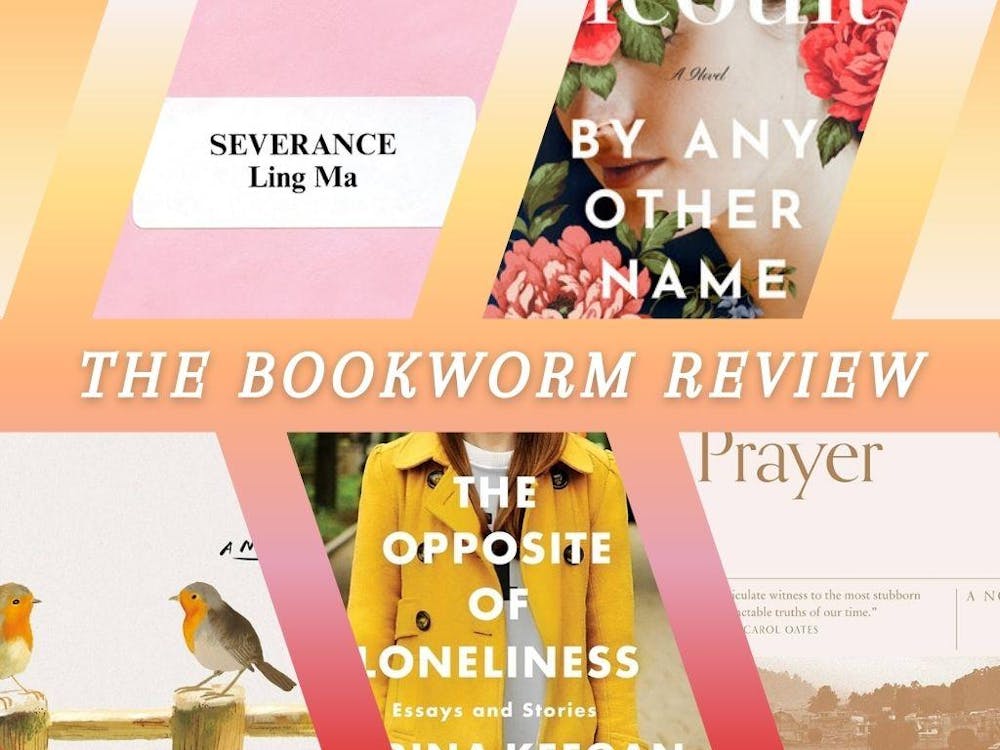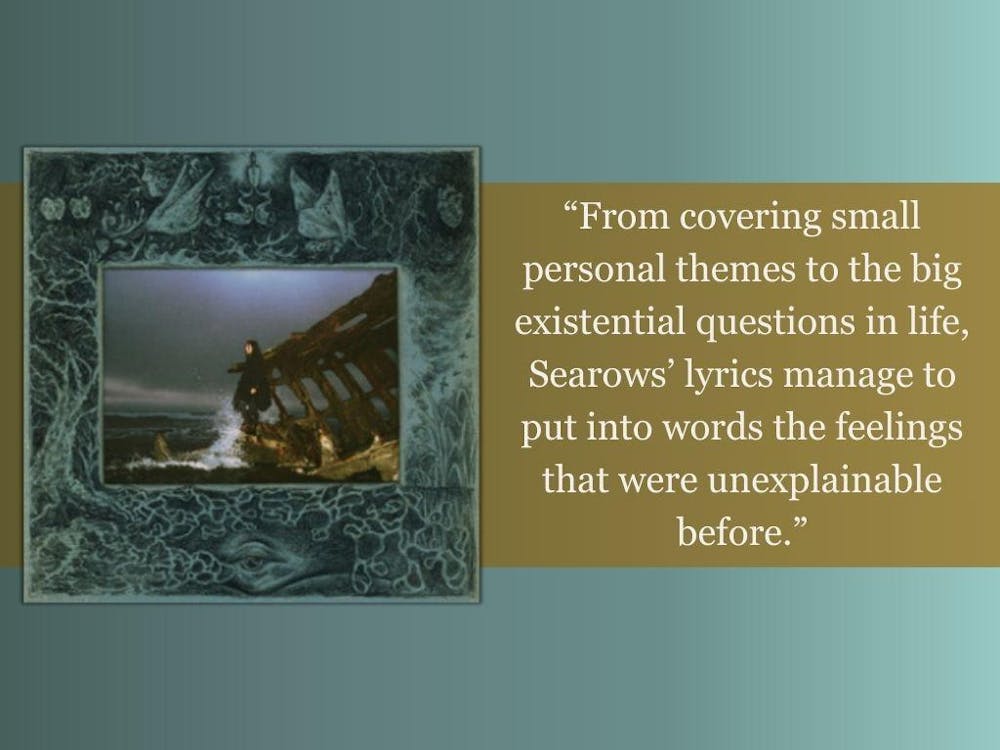Roula Allouch sat behind a glass wall watching a focus group discuss their feelings on Muslim-Americans. She remembers the viscous words and proclamations of hate toward people of her faith. But when the group was made to watch a video on a Muslim speaker condemning violent actions often associated with Islam in the media, their words changed.
"'Well, if I saw things like that, I'd think differently,'" Allouch remembers hearing one of the participants say.
Allouch is the chair of the national board of directors for the Council on American-Islamic Relations (CAIR). CAIR is a civil rights and advocacy group that focuses on the ways the Muslim community is portrayed in American media.
Allouch came to Miami on Monday, Oct. 22 to talk to two classes, Journalism 318 and Sociology 303, about her work with CAIR and the issues Muslim-Americans currently face.
Allouch said that Anti-Muslim hate has increased in the last decade, and millions of Muslims living in America are afraid to express their faith for fear of falling victim to a hate crime.
"I know people who won't go to the mosque anymore because they feel unsafe, or don't cover their hair anymore because they don't want to be 'outwardly Muslim,'" said Allouch.
These assimilation techniques can be seen right here at Miami. Zafer Ozdemir, professor of information systems and analytics and faculty advisor for Miami's Muslim Student Association, said that one of his female students covered her hair when she first got to Miami but now he notices that she no longer practices that tradition.
"I didn't ask, and she didn't say," said Ozdemir. "But perhaps it was because of some kind of response from her environment."
A lawyer from Kentucky raised by Syrian immigrants, Allouch said she isn't as phased by name-calling hate speech anymore. But there are certain phrases used in both the media and on the street, that make her upset. Specifically, when people tell her to 'go back to her country,' which, in actuality, is the United States.
"Words are still powerful, and it still hurts," said Allouch.
Allouch said media outlets historically use words that paint the Muslim community in a negative light and portray them as hateful, violent terrorists. She believes the words reporters use when covering the community are a key factor in how these misconceptions are spread.
The word "Allah," which means God in Arabic, is a particularly poignant example, according to Allouch. She said reporters use the word Allah more than they use the word God when covering the Muslim community, which creates a disconnect between the majority of Americans and the Muslim-American community.
Enjoy what you're reading?
Signup for our newsletter
"I'm a Muslim and I use the word 'God' more than I do 'Allah,'" said Allouch.
"Jihadist" is another word Allouch pointed out as othering the Muslim community. "Jihad" is an Arabic word that signifies the struggles a Muslim person goes through in order to live their faith.
"When it's hot but I have to wear my Hijab, or when people are rude to me but I am nice because my faith tells me to treat others nicely, that is Jihad," said Allouch.
"Jihadist," on the other hand, is not an Arabic word, but one created by Americans. Google Dictionary defines "Jihadist" as "a Jihadi." It defines the word "Jihadi" as "a person involved in a jihad; an Islamic militant." The connotations of the made-up word "Jihadist" involve military action, violence and crime, things that have nothing to do with the actual Arabic meaning of the word "Jihad."
Continuous misuse of these words are not the only plights for Muslim-Americans as they look to the media; there is also the offense of mispronunciation. Allouch referred to the word "Muslim" as one of the most mispronounced words she notices in the news media, especially following the 9/11 attacks.
"Mispronunciation of the name itself was annoying as hell," said Allouch. "Just call us what we are."
But Allouch also said that, more often than not, these words are used intentionally. Ozdemir agreed.
"News media is always after sensational news," Ozdemir said. "I think people should be more careful about news outlets."
Ozdemir talked about the institutional agendas of news outlets. Allouch touched on this as well, warning young writers and consumers of the media about the importance of making sure that those speaking in public on behalf of minority communities are actually of that community.
"I very intentionally wanted to be a part of the movement that centered our own voices," Allouch said.
Here at Miami, the community of Muslim voices is very small. Ozdemir estimates there are roughly 50 practicing Muslims on campus.
"There are many more second generation Muslims and immigrants in the student population, but they don't practice or don't want to be identified as Muslim," said Ozdemir.
There are around 25-30 students that come to Friday prayers during the school year, said Ozdemir. But the Muslim Students Association only draws four to five people to their meetings. Their prayer room is small and the club especially struggles to attract female participation.
"If it were a lot more of a diverse student population, like the east or west coast, maybe they would feel more comfortable," said Ozdemir. "We can't blame the Miami student population for anything that's going on."
Besides the Miami population, Ozdemir challenged the media to take ownership for some of the problems related to the Muslim community.
"One has to be also aware that as a reporter you're always interpreting from your worldview," said Ozdemir. "As a journalist, you should open yourselves to other ways that things are going on."
Ozdemir believes part of being a good reporter has to do with being impartial, and really putting yourself in the shoes of another person. He said that this attitude could help make Muslims feel safer, not just at Miami, but in America in general.
Allouch brings this idea of empathy into her everyday work as an advocate for not just her community, but for other oppressed people outside of the Muslim community. However, the timeliness of Islamic issues keeps her focused on CAIR for now.
"Islam is the community of the moment, and words are a big part of it," she said.
Stereotypes and misinformation about the Muslim community are not only hurtful emotionally, but can be deadly. Allouch, along with CAIR, aims to change the way the Muslim community and the Middle East as a whole are portrayed in America.
"I just love to see the kids in our community feeling comfortable to be Muslim," said Allouch. "My faith leads me to be somebody that fights for justice."
ander198@miamioh.edu
mitche49@miamioh.edu




